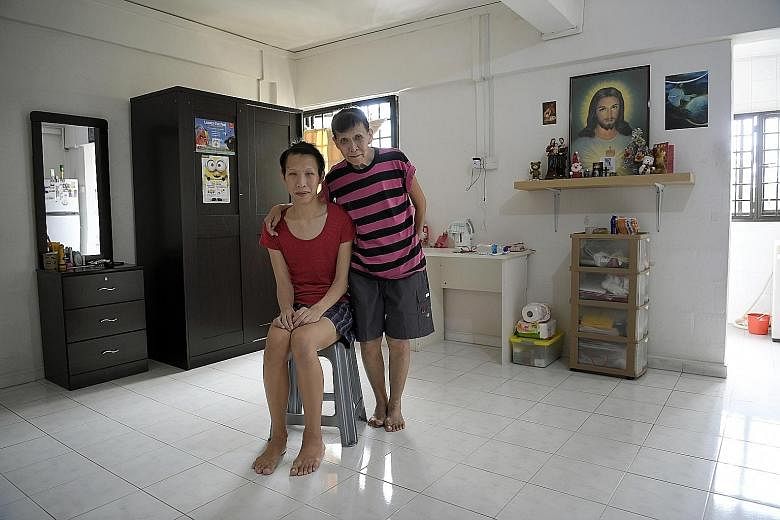Madam Tan Lye Han, 60, is looking for a night job, perhaps as a cleaner at a hotel near her home. The single mother needs to care for her 24- year-old son during the day, and wants to work while he sleeps.
She lost her job as a part-time cleaner earlier this year, mainly because she had to tend to his medical issues. He has thalassemia, a blood disorder that renders him weak and sickly, and an intellectual disability.
However, beyond providing for the two of them financially, Madam Tan does not know what will become of her son when she is no longer around.
"I just hope he will be healthy, he will have a part-time job and have some friends," said Madam Tan, who lives with him in a one-room rental flat in Ang Mo Kio.
For caregivers, the single "greatest worry" is what happens to their loved ones with disabilities if they are not there to care for them.
This was voiced during discussions organised by the panel behind the latest Enabling Masterplan, a national blueprint for disability services, released yesterday.
One of its recommendations was that caregivers be given more support in planning the finances and care for people with disabilities.
There are existing services that help caregivers with financial and care planning, such as those offered by the Special Needs Trust Company, but the panel said there needs to be greater awareness of this help available.
It also suggested that the process of applying for a deputy to continue making major decisions for the person with disability when he turns 21 be simplified for caregivers.
Beyond financial and legal matters, the panel also proposed a "system of support" that will help caregivers in care planning, including identifying the next caregiver and passing on that role.
"This would include assistance with documenting and passing on caregiving-related knowledge and skills to the next caregiver. The process should be iterative and requires clear communication to the next caregiver on their roles and the needs of the person with disability," the panel said in its report.
The panel made other recommendations to improve caregivers' well-being and their capabilities. It suggested giving caregivers easier access to counselling services, expanding existing support networks and having a greater variety of training courses and the mode in which they are offered.
However, support for caregivers has to be tailored to the individual, said experts.
Noted Ms Ong Ai Weig, who teaches social work at Nanyang Polytechnic: "They have to manage their own life issues, and that of the people with disabilities. If they have insufficient support, this affects their quality of care, and ultimately affects the quality of life of the person with disability too."
The thought of caregiving training, for instance, is hardly a priority for Madam Tan.
"The cost of living has been going up. We need to earn money, so I will use my sleeping time to go and work," she said.


